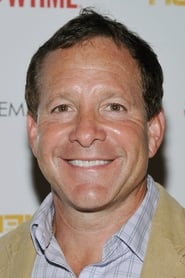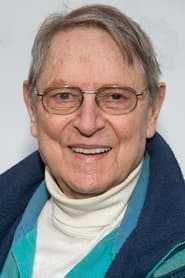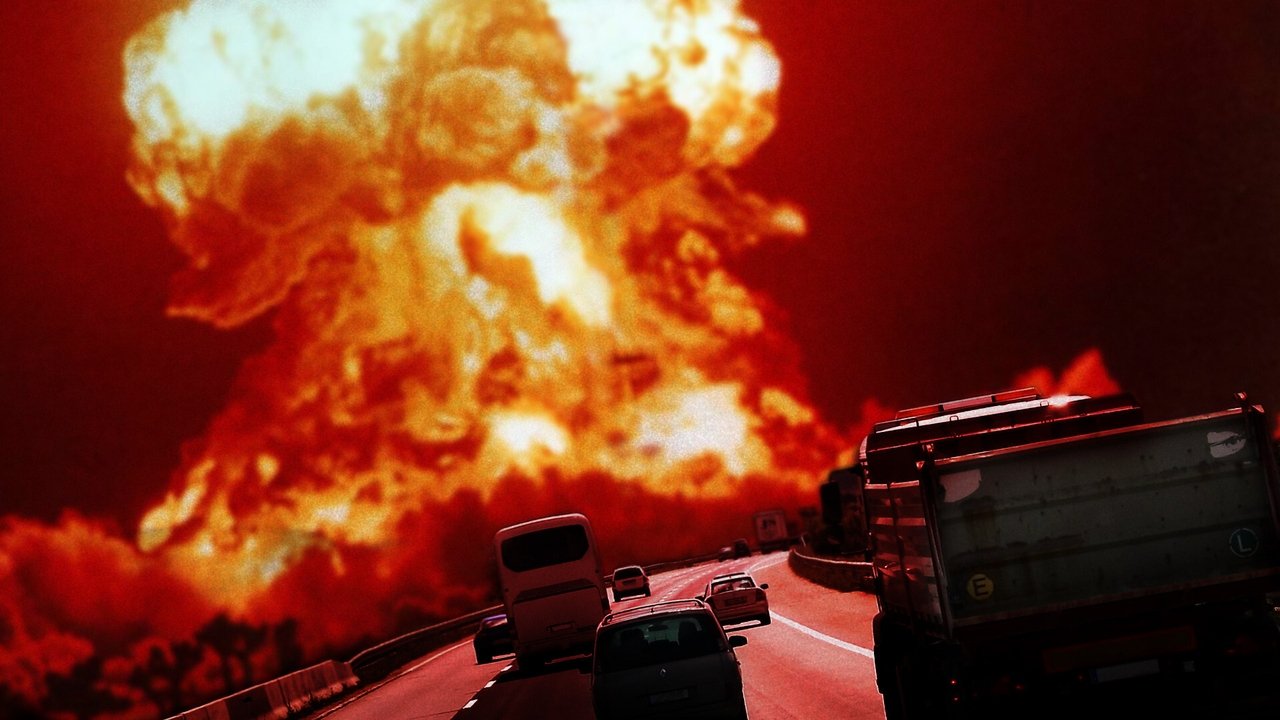They told us it would be impossible to make this movie. They told us it would be impossible for you to watch it. We hope nothing is impossible.
In the mid-1980s, tensions between the U.S. and the Soviet Union escalate to a critical point, leaving the specter of nuclear conflict hanging ominously over the country. In a small Kansas town, life appears to carry on as usual, with its residents blissfully unaware of the impending catastrophe. Dr. Russell Oakes, played by the esteemed Jason Robards, juggles his demanding hospital duties while providing care and compassion to those around him. Meanwhile, Nurse Nancy Bauer, portrayed by JoBeth Williams, supports him tirelessly, ensuring the well-being of their patients. Among the town's citizens, Denise Dahlberg eagerly anticipates her upcoming wedding, and graduate student Stephen Klein immerses himself in his studies, embodying the hopes and aspirations of the American dream, blissfully ignorant of the turmoil that looms on the horizon.
As the narrative progresses, the illusion of normalcy is shattered when the unthinkable occurs: nuclear bombs detonate, plunging the once-vibrant community into a nightmare of devastation. The explosion not only decimates the town but also disrupts the lives of its inhabitants, forcing them to confront the immediate and terrifying reality of nuclear winter. The characters are thrown into chaos, struggling to adapt to their new circumstances as survival takes precedence over their previous aspirations. The film poignantly captures the fear and disorientation felt by ordinary citizens when faced with extraordinary circumstances, and how the relationships among them become vital for coping with the aftermath.
Ultimately, "The Day After" serves as a haunting reminder of the fragility of life in the face of global conflict. Through the journeys of Dr. Oakes, Nurse Bauer, Denise, and Stephen, the film delves into the resilience of the human spirit in times of despair. Viewers witness the profound transformations each character undergoes as they grapple with loss, desperation, and, ultimately, the instinct to survive. The movie powerfully illustrates not only the devastating consequences of nuclear war but also the enduring connections that can emerge between individuals when the world as they know it has irrevocably changed.
Main Cast of The Day After

Jason Robards
Dr. Russell Oakes
Jason Robards delivered a poignant and emotionally resonant performance as Dr. Russell Oakes in the 1983 made-for-television movie "The Day After," directed by Nicholas Meyer. Set against the backdrop of a fictional nuclear war between the United States and the Soviet Union, Robards' portrayal of Oakes, a compassionate and dedicated physician, serves as the moral and humanistic center of the film. As the fabric of society unravels in the wake of the catastrophic event, Robards conveys the heart-wrenching transformation of a man who witnesses the annihilation of his community and the world as he knows it. His performance is marked by a profound depth of feeling, capturing the essence of a man who grapples with the shock, despair, and utter hopelessness that comes with the realization of nuclear devastation. Robards' Oakes emerges as a symbol of enduring humanity and the resilience of the human spirit in the face of unimaginable destruction, making his portrayal both haunting and memorable in this powerful commentary on the consequences of nuclear war.

JoBeth Williams
Nurse Nancy Bauer
JoBeth Williams delivered a poignant and emotionally resonant performance as Nurse Nancy Bauer in the harrowing 1983 made-for-television movie, "The Day After." Set in the aftermath of a nuclear war, Williams' portrayal of Nancy is one of resilience and compassion amidst utter devastation. Her character, a nurse at a local hospital, becomes a beacon of hope as she selflessly tends to the wounded and traumatized, embodying the indomitable spirit of humanity in the face of unimaginable catastrophe. Williams' performance is marked by a raw authenticity as she grapples with the personal and professional challenges of a world forever altered by nuclear holocaust. Her interactions with other characters, including her son and fellow survivors, showcase her ability to convey a complex mix of fear, determination, and maternal instinct, which serves as a touching counterpoint to the film's grim narrative. JoBeth Williams' nuanced depiction of Nurse Nancy Bauer stands as a testament to the enduring strength of individuals and the essential role of caregivers during society's darkest hours.

Steve Guttenberg
Stephen Klein
Steve Guttenberg delivered a compelling performance as Stephen Klein in the harrowing 1983 made-for-television movie "The Day After," directed by Nicholas Meyer. Portraying a young medical student caught in the throes of a nuclear holocaust, Guttenberg skillfully conveyed the profound transformation of his character from an ambitious academic to a survivor grappling with the stark realities of a post-apocalyptic world. His portrayal of Klein's initial denial, subsequent horror, and eventual resilience in the face of unimaginable destruction resonated with audiences, highlighting the human capacity for endurance and hope amidst despair. Guttenberg's performance was pivotal in bringing to life the personal and societal impact of nuclear war, contributing to the film's powerful anti-war message and its lasting cultural influence.

John Cullum
Jim Dahlberg
John Cullum delivers a poignant and emotionally resonant performance as Jim Dahlberg in the harrowing 1983 television movie "The Day After." Set against the backdrop of a nuclear holocaust, Cullum's portrayal of Dahlberg, a compassionate university professor and farmer, serves as the moral compass of the film. His character grapples with the devastating aftermath of nuclear warfare, which not only tests his survival instincts but also his deep-seated values and sense of humanity. Cullum's performance is marked by a profound tenderness and a steadfast resolve, as he navigates the chaos and despair that ensues, desperately trying to hold onto hope and protect his family amidst the ruins of their world. His portrayal of Dahlberg's internal struggle and eventual resignation to their bleak new reality is both heart-wrenching and thought-provoking, leaving an indelible impact on the audience and contributing significantly to the film's lasting legacy as a powerful commentary on the consequences of nuclear war.
Crew of The Day After
Full backstage crew list →




